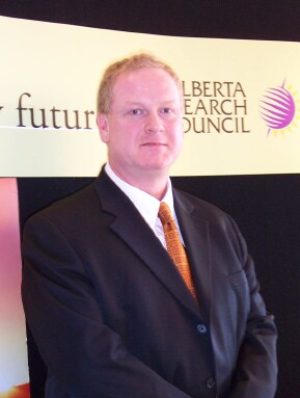Innovation Anthology #121: Manager of Land Services, Genesee

The Alberta Research Council has signed a Memorandum of Understanding with the Idaho National Laboratory to investigate energy resources and technologies on both sides of the border.
According to ARC’s Dr. Ian Potter, the research agencies will benefit from each other’s expertise. Alberta is strong in coal, oil and oil sands technology. Idaho is a leader in nuclear energy and waste management.
The first task for these new partners is to assess the feasibility of using nuclear energy in Alberta. As Dr. Potter explains, there are practical concerns over procurement, environmental impact and safety. But nuclear also offers the potential for merging parallel energy systems.
DR. IAN POTTER: For example, nuclear with hydrogen generation. Hydrogen is needed in the oil sands for the upgrading process. When you generate hydrogen, you also generate oxygen and the oxygen could be used in a gasification system where you could gasify coal, or bitumen bottoms, or something like that if you run a nuclear power plant and gasification system in parallel. So it’s very much on the fundamental technical engineering and practically how you would do it.
Dr. Ian Potter expects it will take six months to complete the first phase of its report for the Alberta Government on nuclear energy
Thanks today to the Alberta Research Council.
FOR INNOVATION ANTHOLOGY, I’M CHERYL CROUCHER
Guest
George Greenhough,
Capital Power, Edmonton, Alberta, Canada,
Sponsor
Alberta Research Council
Established as the first provincial research organization in Canada, the Alberta Research Council is 85 years old. The Alberta Research Council (ARC) develops and commercializes technologies to give customers a competitive advantage. A leader in innovation, ARC provides solutions globally to the energy, life sciences, agriculture, environment, forestry and manufacturing sectors.
ARC performs about five per cent of the roughly $1.5 billion in R&D done in Alberta each year, and generates revenues of approximately $84 million per year. ARC operates from five sites across the province in Edmonton, Calgary, Vegreville and Devon and employs more than 600 highly-skilled people.
In January 2010, under the new Alberta Innovation Framework, the Alberta Research Council was restructured and incorporated into the new provincial agency Alberta Innovates Technology Futures.

Program Date: 2008-04-01